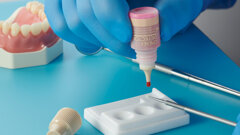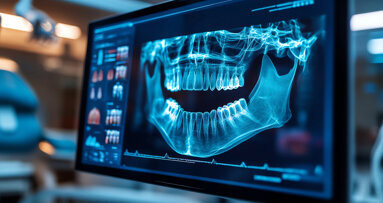ORADEA, Romania: Ongoing research continues to illuminate the plethora of ways in which oral and systemic health influence each other. While odontogenic infections are known contributors to deep neck space infections, the specific impact of dental status—such as tooth loss or dental work—on the clinical course of peritonsillar and deep neck space infections is under-explored. A recent Romanian study has assessed whether dental status is associated with differences in clinical presentation, therapeutic approach and hospitalisation duration and found that poor dental health can significantly influence the severity and treatment of life-threatening peritonsillar and deep neck space infections.
In this retrospective cohort study conducted across Romanian hospitals, patients admitted with peritonsillar phlegmon, peritonsillar abscess, or laterocervical or submandibular abscess were assessed for various dental health indicators, including the presence of implants, prior dental treatments and overall dentition quality. The researchers found that individuals with prior dental work tended to require complex treatment, including corticosteroid therapy. Poor dentition was similarly associated with more severe forms of infection and the need for intensive clinical management. Patients without dental implants experienced longer hospital stays and more frequent antibiotic and analgesic use, suggesting a heightened burden of disease.
These outcomes point to more pronounced inflammatory responses and complications in individuals with poor oral health. The study authors proposed that previous dental work may leave behind sites of chronic inflammation or bacterial biofilm, which can act as reservoirs and facilitate the spread of infection in the head and neck region.
Given the potential severity of peritonsillar and deep neck space infections, the study underscores oral health as an important and modifiable factor in infection prevention. The authors recommended greater emphasis on dental hygiene, regular oral assessments in ENT settings and stronger interdisciplinary cooperation between dentists and otolaryngologists as part of a comprehensive public health approach.
The study is crucial in that it moves beyond past research demonstrating a causal link between oral health and related infections by suggesting that oral health may act as an important modifying risk factor for non-dental infections. However, the study’s retrospective nature and relatively small sample size limit its generalisability. The authors pointed to the absence of detailed oral health measures such as periodontal status or plaque indices, and data on lifestyle factors like smoking and alcohol use, which may influence infection severity and treatment response, was not collected.
The findings underscore the vital role of dentistry in systemic health. For clinicians across both fields, prioritising oral care could be key in reducing the severity and complications of serious oropharyngeal infections.
The study, titled “The role of dental status in the pathogenesis and severity of peritonsillar and cervical infections”, was published online on 14 July 2025 in Frontiers in Medicine.
Topics:
Tags:
WASHINGTON, US: While the links between oral and systemic health are well established and widely discussed in the dental literature, the broader ...
In medicine, it is widely accepted that medical implants and treatments require revision over time. In orthopaedic surgery, for example, joint replacements ...
NEW YORK, US: Oral diseases and depression are both projected to rise in prevalence over the coming decades, and recent findings suggest the two may be ...
MALMÖ, Sweden: A forward thinking, transdisciplinary oral health research hub at Malmö University has received a welcome funding injection from ...
STONY BROOK, N.Y., US: The applicability and efficacy of artificial intelligence (AI) within dentistry appears to be limitless. With each passing day, ...
Live webinar
Wed. 25 February 2026
11:00 am EST (New York)
Prof. Dr. Daniel Edelhoff
Live webinar
Wed. 25 February 2026
1:00 pm EST (New York)
Live webinar
Wed. 25 February 2026
8:00 pm EST (New York)
Live webinar
Tue. 3 March 2026
11:00 am EST (New York)
Dr. Omar Lugo Cirujano Maxilofacial
Live webinar
Tue. 3 March 2026
8:00 pm EST (New York)
Dr. Vasiliki Maseli DDS, MS, EdM
Live webinar
Wed. 4 March 2026
12:00 pm EST (New York)
Munther Sulieman LDS RCS (Eng) BDS (Lond) MSc PhD
Live webinar
Wed. 4 March 2026
1:00 pm EST (New York)



 Austria / Österreich
Austria / Österreich
 Bosnia and Herzegovina / Босна и Херцеговина
Bosnia and Herzegovina / Босна и Херцеговина
 Bulgaria / България
Bulgaria / България
 Croatia / Hrvatska
Croatia / Hrvatska
 Czech Republic & Slovakia / Česká republika & Slovensko
Czech Republic & Slovakia / Česká republika & Slovensko
 France / France
France / France
 Germany / Deutschland
Germany / Deutschland
 Greece / ΕΛΛΑΔΑ
Greece / ΕΛΛΑΔΑ
 Hungary / Hungary
Hungary / Hungary
 Italy / Italia
Italy / Italia
 Netherlands / Nederland
Netherlands / Nederland
 Nordic / Nordic
Nordic / Nordic
 Poland / Polska
Poland / Polska
 Portugal / Portugal
Portugal / Portugal
 Romania & Moldova / România & Moldova
Romania & Moldova / România & Moldova
 Slovenia / Slovenija
Slovenia / Slovenija
 Serbia & Montenegro / Србија и Црна Гора
Serbia & Montenegro / Србија и Црна Гора
 Spain / España
Spain / España
 Switzerland / Schweiz
Switzerland / Schweiz
 Turkey / Türkiye
Turkey / Türkiye
 UK & Ireland / UK & Ireland
UK & Ireland / UK & Ireland
 Brazil / Brasil
Brazil / Brasil
 Canada / Canada
Canada / Canada
 Latin America / Latinoamérica
Latin America / Latinoamérica
 USA / USA
USA / USA
 China / 中国
China / 中国
 India / भारत गणराज्य
India / भारत गणराज्य
 Pakistan / Pākistān
Pakistan / Pākistān
 Vietnam / Việt Nam
Vietnam / Việt Nam
 ASEAN / ASEAN
ASEAN / ASEAN
 Israel / מְדִינַת יִשְׂרָאֵל
Israel / מְדִינַת יִשְׂרָאֵל
 Algeria, Morocco & Tunisia / الجزائر والمغرب وتونس
Algeria, Morocco & Tunisia / الجزائر والمغرب وتونس
 Middle East / Middle East
Middle East / Middle East







































To post a reply please login or register